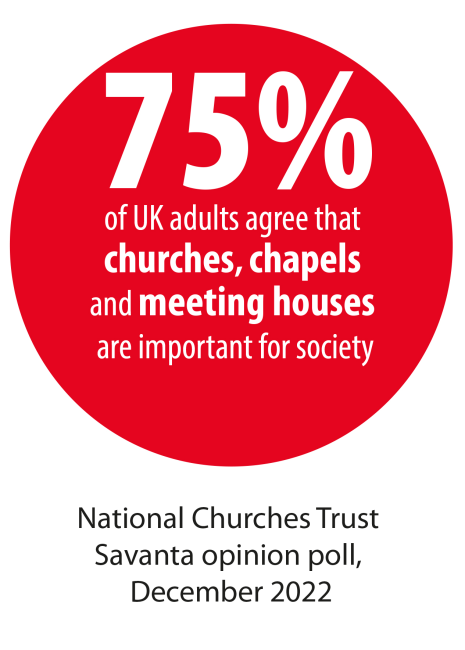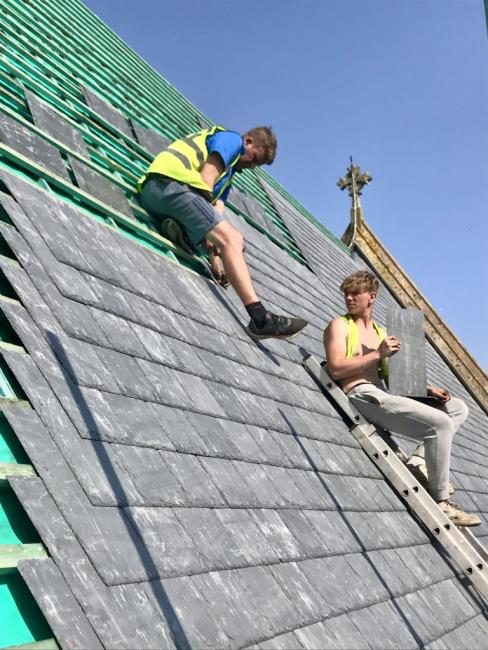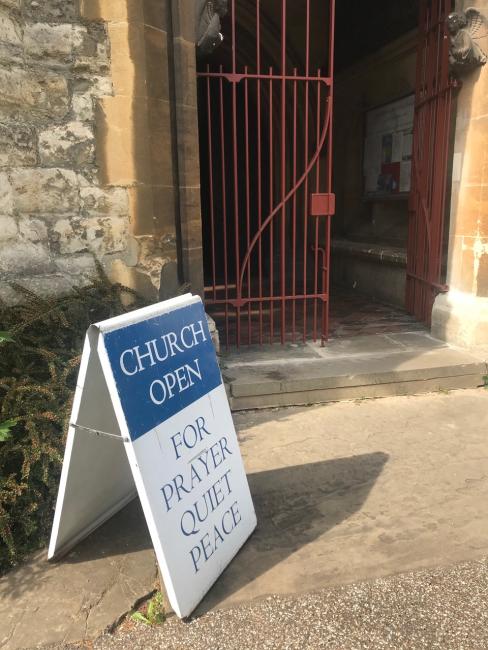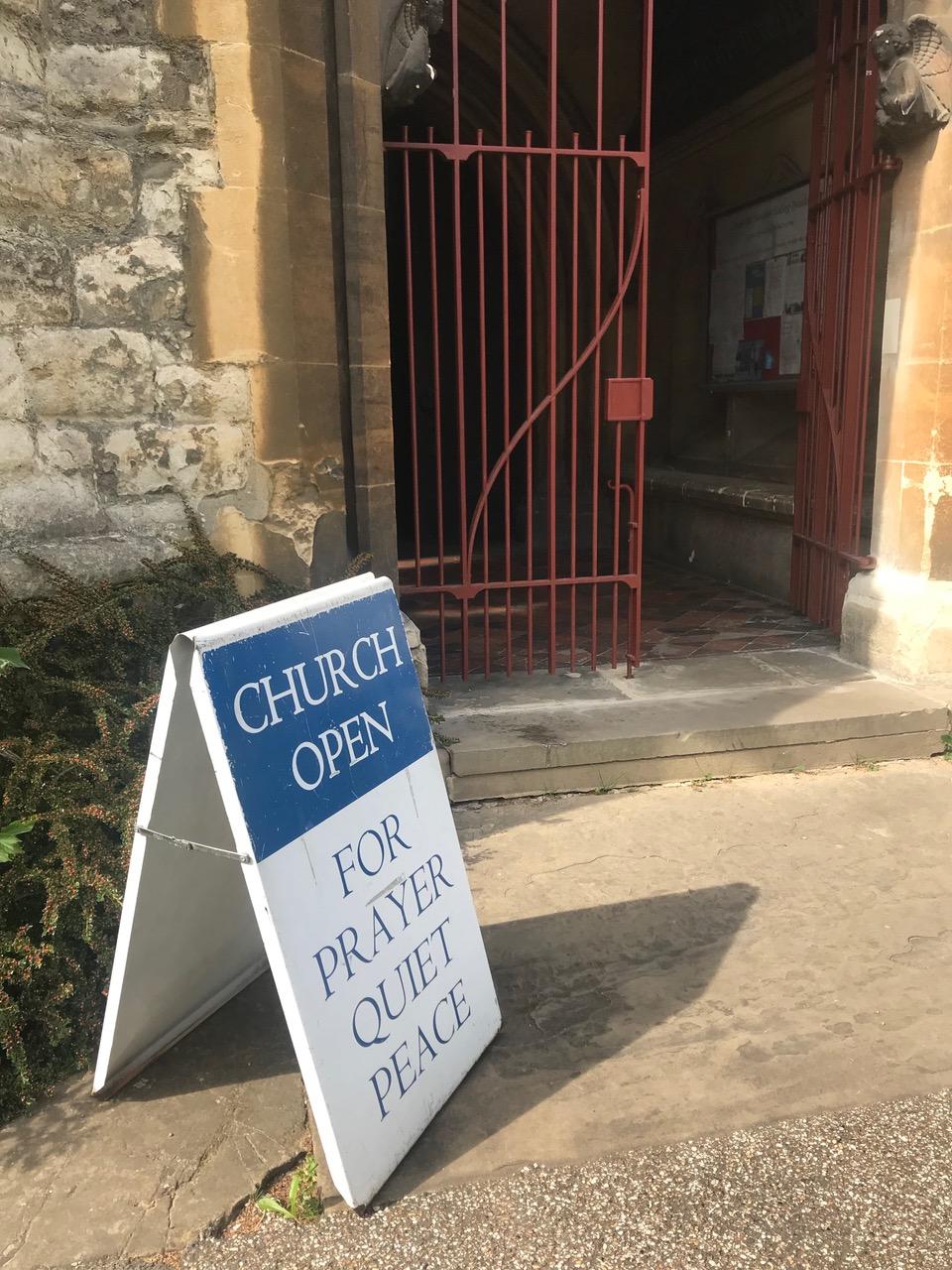Despite a decline in the number of Christians in the UK, the public overwhelmingly support the nation’s 39,000 churches, chapels and meeting houses, according to the findings of a new opinion poll commissioned by the National Churches Trust.
Key findings of the Savanta opinion poll, which surveyed 2061 UK adults online between the 9th and 12th December 2022, include:
- Three quarters (75%) of UK adults agree that churches, chapels and meeting houses are important for society as they provide a space for activities and support for local people, such as foodbanks and warm spaces.
- A large majority of UK adults (73%) also agree that the UK’s churches, chapels and meeting houses are an important part of the UK’s heritage and history.
-

(c) National Churches Trust
Government financial support
With over 900 churches on the Heritage at Risk Register, and the Church of England facing a £1 billion repair bill for its buildings over the next five years, many parishes face severe challenges in keeping their buildings open and in good repair.
A majority of UK adults (50%) agree that the Government should give financial support to churches, chapels and meeting houses to help pay for building repairs to keep them open. Only 22% disagree, with 25% neither agreeing nor disagreeing.
More adults in England (52%) than in Scotland (41%) agree that the Government should give financial support to churches, chapels and meeting houses to help pay for building repairs to keep them open.
UK adults are slightly more likely to agree that repairs to churches, chapels and meeting houses should be supported with money from local taxes (45%) than with money from national taxes (40%).

Claire Walker, Chief Executive of the National Churches Trust said:
“With an increasing number of churches under threat of closure, the findings of our Savanta opinion poll show that church buildings have the overwhelming backing of the UK public. "
“They know that churches provide important benefits to society and are also a key part of our history and heritage. The public also agree that Government should give financial support to help pay for building repairs to help keep churches open.”
“The high cost of keeping churches open and in good repair, many of which are historic buildings, can often be an important factor leading to their closure.”
“Fixing a leaking roof can cost over half a million pounds. With few sources of funding, it can be extremely hard for local worshippers to find the money needed for urgent repairs.”
"Unlike many other countries, the UK’s churches and chapels are the responsibility of local people, not the state or local government, and receive no regular public funding."
“More Government funding of church repairs, such as the £30 million provided through the post-Covid Heritage Stimulus Fund, could help stop church closures and ensure that more remain open providing community support such as foodbanks and warm spaces, as well as being key places for prayer and reflection and an important part of our magnificent national heritage.”
“The UK’s churches are not just Houses of God. They are also Houses of Good - good that we risk losing, and may never be replaced if they do not get the financial support they need to stay open and in good repair.”
"Independent economic analysis has shown the value of these buildings to society is huge: at least £55bn a year from the community activities, quite apart from the outstanding significance to our heritage. But across the country, the demand for our support vastly exceeds the resources available: the backlog of repairs is well over £1bn."
“That’s why in the past two years, the National Churches Trust has helped keep over 500 churches open and in good repair with funding of over six million pounds for urgent repairs and the installation of modern community facilities.”
“Carrying out church repairs and maintenance is also a boon to local economies as this work often involves local contractors and makes use of an incredible range of heritage craft skills at which the UK excels. Repairing and maintaining existing churches is also good for the environment as it helps avoid the embodied carbon needed to replace an old building with a new one.
Other key findings of the opinion poll include:
- Over half of UK adults have visited a church in the past year
The poll found that churches are popular places for people to visit and use.
More than half of UK adults (54%) visited a church in the past year. A quarter (25%) visited for a religious service, one in five (22%) for a non-religious community activity or service such as a foodbank, playgroup, lunch club, concert or meeting, and one in six (17%) went to a church, chapel or meeting house as a visitor or tourist.
Younger respondents are more likely than older respondents to have visited these buildings for a non-religious community activity or service (18-34s, 32%; 35-54s 24%; 55+ 12%). Muslims (38%) are more likely than Christians (22%) to have visited a church, chapel or meeting house for a non-religious community activity or service.

- Free admission key to encouraging more tourism and church visiting
When people are asked what would make them more likely to visit churches, chapels or meeting houses as a tourist or visitor, the features they most often select as one of their top three choices are:
- Free entry (28% included this in their top three choices)
- A café where they could have a drink or light snack (26%)
- Being sure of a warm welcome (25%)
- Information about the building’s architecture and heritage (24%)
- Knowing that the church, chapel of meeting house was open every day of the week for visitors (21%)
People in Wales (36%) and Scotland (29%) most often select “a café” as one of the top three features that would make them more likely to visit a church, whereas those in England are most likely to select “free entry” (28%) as one of their top three.
Respondents over 55+ (29%) are more likely than those aged 18-34 (19%) and 35-54 (23%) to select information about the building’s architecture and heritage as one of the top three features that would make them more likely to visit a church.
- The most important benefits of the UK’s 39,000 parish churches, chapels and meeting houses
UK adults are most likely to choose providing space for community activities and services (including foodbanks, warm spaces, playgroups) as one of the top three benefits churches, chapels and meeting houses provide to the UK, with six in ten (59%) selecting this option. Being a place of worship (50%) and being a part of local history and identity (47%) are respectively second and third most likely to be selected as one of the top three benefits these buildings provide to the UK.
Respondents aged 18-34 (50%) are less likely than those aged 35-54 (59%) and 55+ (64%) to choose providing space for community activities and services as one of the top three benefits churches, chapels and meeting houses provide to the UK. Christians (62%) and atheists (58%) are both more likely than members of non-Christian religious groups (46%) to select the option of providing space for community activities and services as one of the top three benefits churches provide.

